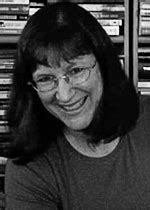A Quote by Frances Wright
Our religious belief usurps the place of our sensations, our imaginations of our judgment. We no longer look to actions, trace their consequences, and then deduce the rule; we first make the rule, and then, right or wrong, force the action to square with it.
Related Quotes
Certainly one of our God-given privileges is the right to choose what our attitude will be in any given set of circumstances. We can let the events that surround us determine our actions-or we can personally take charge and rule our lives, using as guidelines the principles of pure religion. Pure religion is learning the gospel of Jesus Christ and then putting it into action. Nothing will ever be of real benefit to us until it is incorporated into our own lives.
The first and most important rule to observe...is to use our entire forces with the utmost energy. The second rule is to concentrate our power as much as possible against that section where the chief blows are to be delivered and to incur disadvantages elsewhere, so that our chances of success may increase at the decisive point. The third rule is never to waste time. Finally, the fourth rule is to follow up our successes with the utmost energy. Only pursuit of the beaten enemy gives the fruits of victory.
The quality of everything we do: our physical actions, our verbal actions, and even our mental actions, depends on our motivation. That's why it's important for us to examine our motivation in our day to day life. If we cultivate respect for others and our motivation is sincere, if we develop a genuine concern for others’ well-being, then all our actions will be positive.
The most important human endeavor is the striving for morality in our actions. Our inner balance and even our very existence depend on it. Only morality in our actions can give beauty and dignity to life. To make this a living force and bring it to clear consciousness is perhaps the foremost task of education. The foundation of morality should not be made dependent on myth nor tied to any authority lest doubt about the myth or about the legitimacy of the authority imperil the foundation of sound judgment and action.
Our ultimate weapon is not our guns but our beliefs ... Ours are not Western values. They are the universal values of the human spirit and anywhere, any time, ordinary people are given the chance to choose, the choice is the same. Freedom not tyranny. Democracy not dictatorship. The rule of law not the rule of the secret police. The spread of freedom is the best security for the free. It is our last line of defence and our first line of attack.
Training moments occur when both parents and children do their jobs. The parent's job is to make the rule. The child's job is to break the rule. The parent then corrects and disciplines. The child breaks the rule again, and the parent manages the consequences and empathy that then turn the rule into reality and internal structure for the child.
but it is also true, if this brings her any consolation, that if, before every action, we were to begin weighing up the consequences, thinking about them in earnest, first the immediate consequences, then the probably, then the possible, then the imaginable ones, we should never move beyond the point where our first thought brought us to a halt.
What brings the karmic result from the patterns of our actions is not our action alone. As we intend and then act, we create [our] karma: so another key to understanding the creation of karma is becoming aware of intention. The heart is our garden, and along with each action there is an intention that is planted like a seed. The result of the patterns of our karma is the fruit of these seeds.
In short, my vision of a responsible free society is one in which we discourage evil, but do not prohibit it. We make our children and students aware of the consequences of drug abuse and other forms of irresponsible behavior. But after all our persuading, if they still want to use harmful drugs, that is their privilege. In a free society, individuals must have the right to do right or wrong, as long as they don't threaten or infringe upon the rights or property of others. They must also suffer the consequences of their actions, as it is from consequences that they learn to choose properly






































